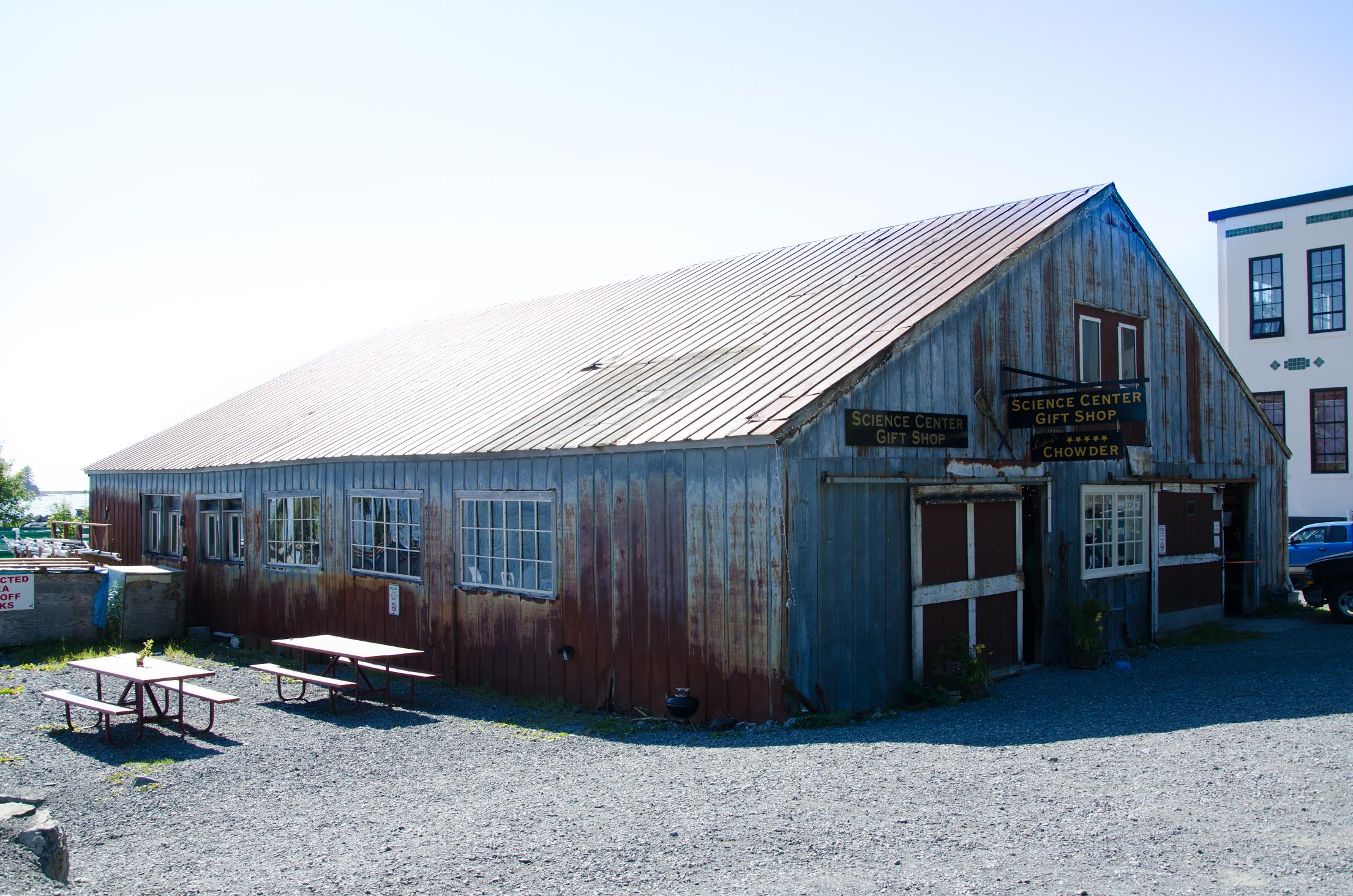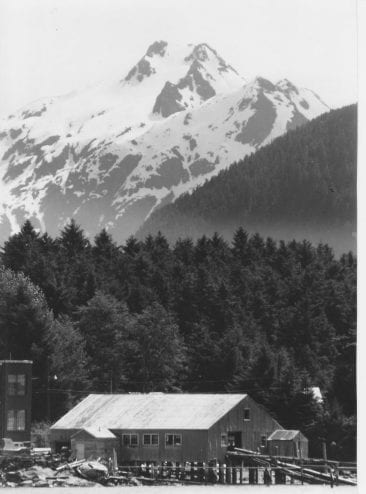
The Historic Sitka Sawmill Building today. It houses the Sitka Sound Science Center gift shop as well as a Ludvigs chowder cart during the summer months. (Photo provided by SSSC)
The Sitka Sound Science Center is bustling with tourists, sampling Ludvigs chowder and picking up souvenirs. But this time next year, the historic Mill Building may look quite different, thanks to a grant from the Rasmuson Foundation and, the Center hopes, some matching local funds.
Lisa Busch, executive director of the Sitka Sound Science Center, is showing me photographs tacked to big black and white poster boards in her office. There’s a picture of a big, barn-like building next door: the Historic Mill Building. A part of Sheldon Jackson College, the sawmill was for students to mill wood for boats and building construction.
“This is a picture of the original mill building in 1934. It was built with scrap lumber. You can see it has this beautiful wood siding and shake roofing.
But in 1940, the mill building burnt down. Rebuilt a year later, it was relocated to the side of the Sage Building, where the Science Center is now housed.
“What’s really remarkably different is the part that faces the water has this ramp going down. That was used for hauling logs into the building. The building was used as a sawmill where students learned to mill wood. Then they brought the milled wood into the Sage Building and they learned how to build boats.”
Busch says the mill building is rich with local history- Well-known Tsimshian teacher Peter Simpson taught and worked there. Mt. Edgecumbe Principal Gil Truitt learned from him. Nancy Yaw Davis learned to swim beneath its pilings. Busch has come to love it too.
“You can kind of smell it has that old wood floor smell. I love the big wide floorboards. You can see these big trusses that hold the building up. It’s a very simple building. It’s essentially a warehouse.”
The pilings go down to the bedrock and the tide comes in and out beneath. And as Sheldon Jackson got out of the sawmill business and into the aquaculture and hatchery business, the building’s primary use changed and the structure was slowly compromised
“They started to fill in around the building,” Busch says. “And that fill has contributed to, sort of, the decay of the foundation. The roofing is shot, the siding is shot. We have no modern plumbing and, as you can see, just a few light bulbs. So other than that, the building is great.”
Busch grins from ear to ear when she tells me about the grant they’re receiving from the Rasmuson Foundation: 280,000 with an additional 50,000 if they can find matching donations locally.
“We’ve been working on this for a really long time. We’ve looked at lots of different ways to fix the building including taking the whole building down. Which would have been the cheapest and probably the easiest,” Busch says. “But once you take this building down, this bit of history is kind of gone.”
The plan is to open up the ceiling and add more areas for dive research, a program expanded by the Science Center’s increasing interest in ocean acidification. And, Busch adds, they’ll have to lift the building off of the bedrock in order to do substantial repairs to the foundation. While there’s no official estimate, the project is expected to cost over a million dollars. Luckily, Rasmuson isn’t the only donor. Busch and her team have secured earned grants from the Murdoch Trust, the Karsh Family Foundation, and a trickle of money through a Go-Fund-Me Campaign, local dollars to match Rasmuson’s additional $50,000 pledge.
Busch hopes the connections people have to the building will inspire them to contribute to its conservation
“I just like the old stories and the people that go along with the old buildings. That’s something I really appreciate about this place.”































